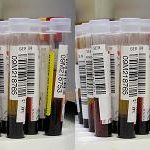Articles

Dietary laxatives are substances that help to stimulate bowel movements. Laxatives come in many different forms, and they can be powerful cleansing agents for people with constipation issues. As a weight-loss tool, however, laxatives can be dangerous and habit-forming. Types of laxatives There are a few main types of laxatives. The first are called bulking …
Read More

Approximately 24 million people suffer from an eating disorder, according to the National Association of Anorexia Nervosa and Related Disorders (ANAD). Bulimia and anorexia represent two of the three most common eating disorders, with binge eating being the third. If left untreated, these disorders can result in death. In fact, eating disorders have the highest …
Read More

Bulimia, also referred to as bulimia nervosa, is one of three common eating disorders that cause serious problems for people who suffer from it. According to the National Institutes of Mental Health, the average age of onset for the disease is 20 years old with more females being affected with bulimia than males. If you …
Read More

Bulimia nervosa is an eating disorder defined by a person’s obsession with binge eating and weight loss. In order to lose weight quickly, some men and women turn to self-induced vomiting. Most Common Effects Induced vomiting often creates calluses and scars on the knuckles or hands. Additionally, the cheeks may become puffy from repeated vomiting …
Read More

There are several blood tests that can support a diagnosis of bulimia, but none will give a firm diagnosis on their own. The reason for this is that the lack of nutrients leading to the abnormalities can come from other diseases. Furthermore, someone may be bulimic and still be getting enough nutrition to mask the …
Read More

Binge eating disorder – also sometimes called emotional eating, compulsive overeating or food addiction – affects approximately three percent of all American adults, making it the most common eating disorder. If left untreated, binge eating can result in several severe medical complications, which can result in early death. If you suspect that a loved one …
Read More

A lab experiment involving two different types of rats and some vanilla frosting might offer new cues about the genetic nature of binge eating disorder. In a new study, researchers from Michigan State University used rodents in attempts to identify how different genetic and biological factors might contribute to eating patterns. For two weeks, 30 …
Read More

Binge eating disorder tends to manifest due to a complex set of psychological, genetic and environmental factors. Treating the condition properly usually involves more than one type of therapy. Along with cognitive-behavioral counseling, nutritional support or other methods, medication can be helpful for certain individuals. Topiramate Topiramate is traditionally used to treat seizures in people who …
Read More

Binge eating disorder is characterized by eating large amounts of food in one sitting. It’s often referred to as being one of the less “glamorous” eating disorders, as binge eaters tend to be stigmatized and shamed by their habits, while anorexics may receive praise or positive attention for being thin. To end a binge eating …
Read More

What is the most common eating disorder in the United States? Binge eating. Affecting about 3 percent of all adults, binge eating is a serious eating disorder that can cause a range of medical complications, including death, if left untreated. Following is an overview of this eating disorder, including signs, symptoms and potential treatment options. …
Read More
 Eating Disorder Self Test. Take the EAT-26 self test to see if you might have eating disorder symptoms that might require professional evaluation. All answers are confidential.
Eating Disorder Self Test. Take the EAT-26 self test to see if you might have eating disorder symptoms that might require professional evaluation. All answers are confidential.
Find a Treatment Facility Near You
Click on a state below to find eating disorder treatment options that could be right for you.










 Eating Disorder Self Test. Take the EAT-26 self test to see if you might have eating disorder symptoms that might require professional evaluation. All answers are confidential.
Eating Disorder Self Test. Take the EAT-26 self test to see if you might have eating disorder symptoms that might require professional evaluation. All answers are confidential.